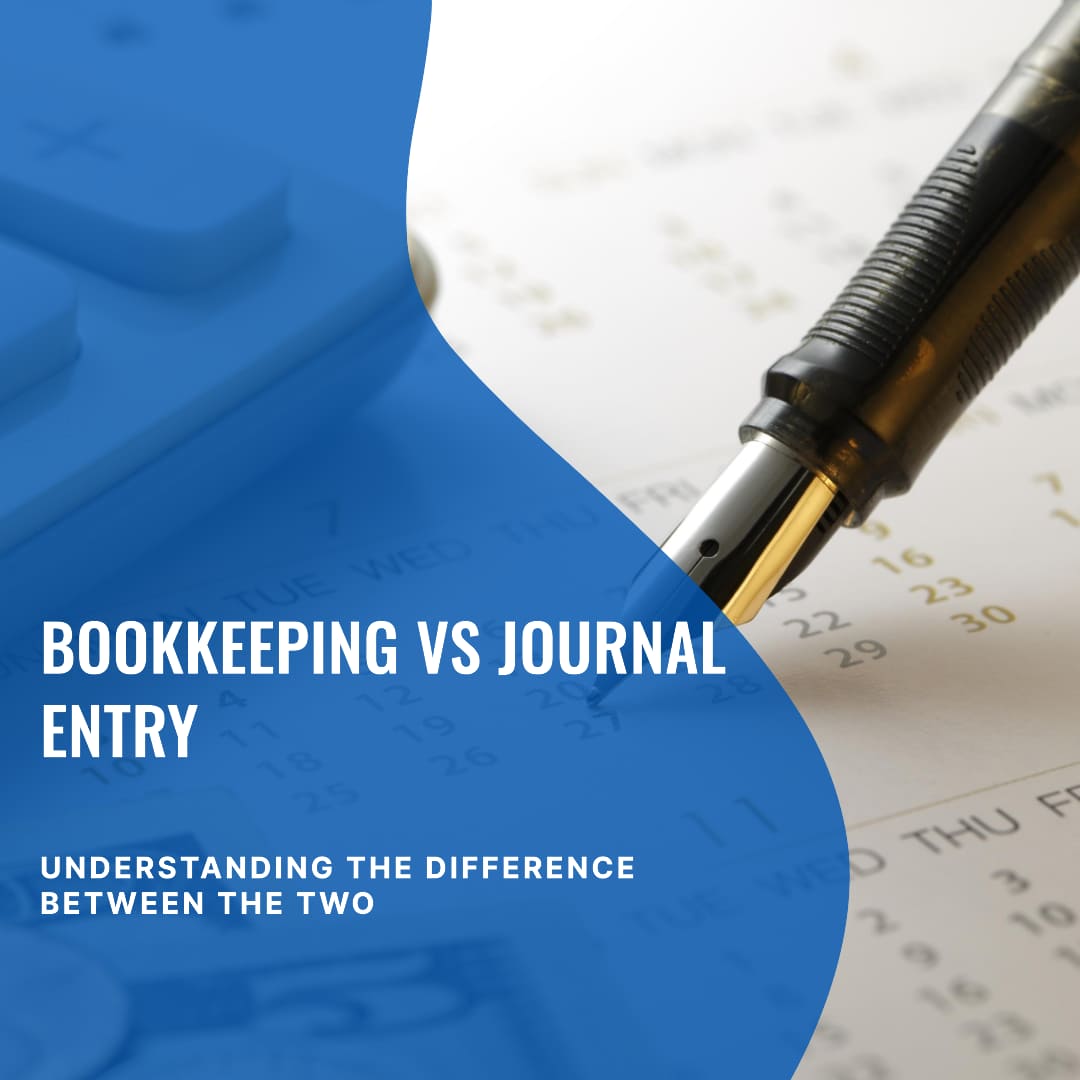Bookkeeping vs Journal entry
Comparison Between Bookkeeping vs Journal Entry in a table format:
| Aspect | Bookkeeping | Journal Entry |
| Definition | The process of recording financial transactions | The specific record of a single financial transaction |
| Purpose | Systematic organization of financial data | Documentation of a transaction in the accounting system |
| Scope | Focuses on day-to-day transactions and records | Represents a single entry within the bookkeeping process |
| Types of Entries | Journal entries (debits and credits) | Individual entries within the accounting journal |
| Level of Detail | Detailed level, transaction by transaction | Records specific details of a single transaction |
| Accounts Involved | All accounts, including assets, liabilities, and equity | Typically affects two or more accounts |
| Frequency | Daily or regular basis | Created whenever a transaction occurs |
| Purpose of Recording | Provides a comprehensive view of financial activities | Captures the specific impact of a transaction |
| Relationship | Part of the overall bookkeeping process | A key component of the bookkeeping process |

It’s important to note that bookkeeping and Journal Entry are closely related and often performed by the same individuals or teams within an organization. Bookkeeping provides the necessary data for accounting, which involves more analysis and interpretation of financial information.



